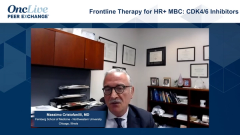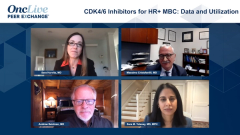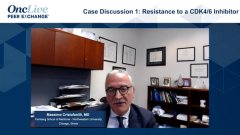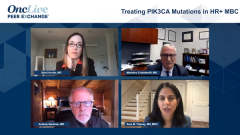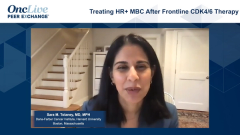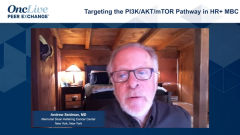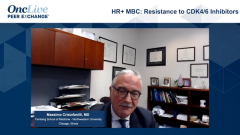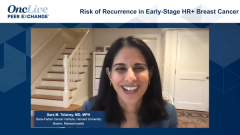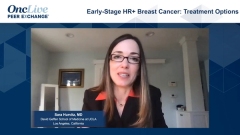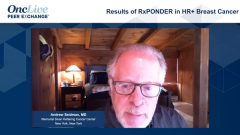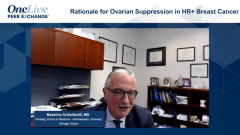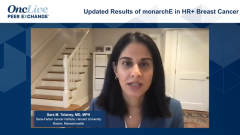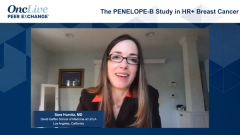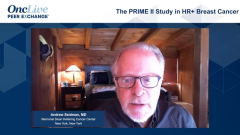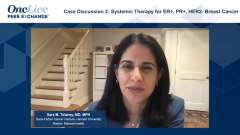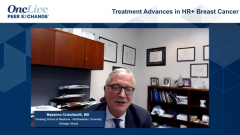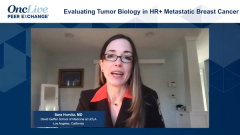
Treatment Advances in HR+ Breast Cancer
A panel of experts who treat breast cancer close out a discussion on the use of newer therapies, including CDK4/6 inhibitors, based on outcomes demonstrated by recent clinical trials.
Episodes in this series

Sara Hurvitz, MD: The last point to bring up about the use of an adjuvant CDK4/6 inhibitor in our highest-risk patients is a portion of them will go on to have disease, metastatic recurrence, either while on the CDK4/6 inhibitor or at some point after completing it. The question then becomes how do we treat them in the frontline setting? I think that’s an unanswered question at this point and one that we contend with in the HER2-positive realm certainly with all the agents that we’re using now in the early stage setting. I’ll just throw it out there as a point. We’re all going to have to ponder, and I think future clinical trials are going to have to address this.
But in the interest of time, I think I’ll close out this meeting. Thank you all so much for this very rich and informative discussion. I’d like 1 final thought from each of you to round out our topic tonight. I’m going to start with you, Dr Cristofanilli. Can you give us 1 final closing thought on this topic?
Massimo Cristofanilli, MD: I think we learned that molecular tests aren’t the final solution. They need to be integrated with clinical information. So we don’t have to forget the past, we just need to make the future richer.
Sara Hurvitz, MD: Excellent. Dr Seidman.
Andrew Seidman, MD: My high-level closing comment is that even as we embrace rational molecular testing, I don’t think we can ignore anatomy. Those clinical and pathological features will still be important, both in metastatic disease and early breast cancer. Even as we focus on de-escalation, sometimes it’s going to be more about treatment optimization than de-escalation. So de-escalation in and of itself isn’t necessarily the Holy Grail.
Sara Hurvitz, MD: Absolutely. And Dr Tolaney.
Sara M. Tolaney, MD, MPH: I would echo that. I think optimizing therapy for the individual patient is really what all these data are homing toward, and we’ve learned a lot to get there. RxPONDER has taught us we can omit chemotherapy in our patients with 3 or fewer positive lymph nodes and a recurrence score less than 25. We’ve learned some strategies that we may need to think about to tailor treatment like in theADAPT trial. I think we’re getting there toward better optimization for our patients, so the future is definitely bright.
Sara Hurvitz, MD: Thank you so much, all of you. This was a wonderful, engaging discussion and thank you to our viewing audience. We hope you found this OncLive® Peer Exchange discussion to be useful and informative. Stay well.
Transcript edited for clarity.


